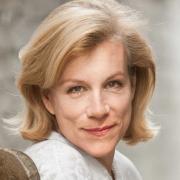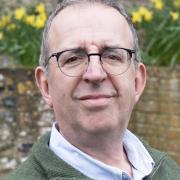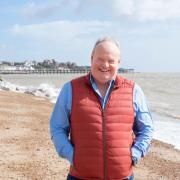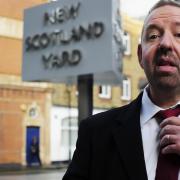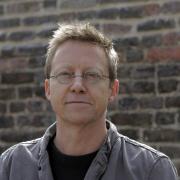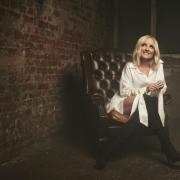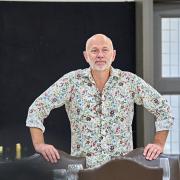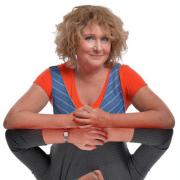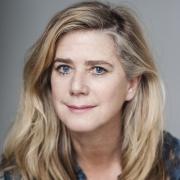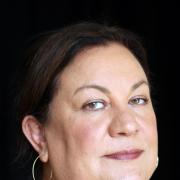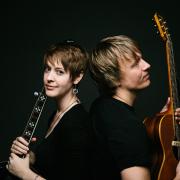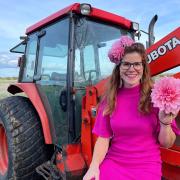BBC journalist and broadcaster Justin Webb kept the truth about his true father a secret for most of his life. Now he reveals much about his painful 1970s childhood in a new book
Justin Webb, presenter of BBC Radio 4's Today programme, is relishing an opportunity to get out from behind the microphone and in front of live audiences when he comes to Felixstowe for this year's book festival.
One of the frustrations of being a radio presenter, he says, is having to cut short the conversation when quizzing politicians, interviewing witnesses or interrogating experts on issues of the day to go to the pips or the weather report.
“I hugely enjoy talking to people face to face in large groups,” he says. “It’s so different from broadcasting. It’s more relaxed and it’s good to have the opportunity to have entire conversations, not just answer questions. It’s fascinating to meet people. Journalistically it opens up the country.”

Justin is the longest serving member of the current team of presenters of Radio 4’s flagship news and current affairs programme having joined in 2009. He has also been the BBC’s Europe correspondent and later its North America correspondent. He's reported on wars in the Gulf and Bosnia, and documented the break-up of the Soviet Union and the first democratic elections in South Africa.
READ: 'Photography saved my life'
This year he's undertaking a tour of speaking engagements focused on his childhood and adolescence, the topic of a remarkably honest and revealing memoir called The Gift of a Radio: My Childhood and other Train Wrecks. Published in February, it came about after Justin was invited to recall his school days for a website called UnHerd. He was surprised to find how interested and energised he was by the exercise.
“It made me think much more about my past than I ever had done before,” he says. So when an agent contacted him and suggested he should turn his essay into a book, he was keen to take up the invitation. He spent six months of lockdown on the project. “I just sat down and wrote. I remembered songs and poems and films, things that came into my head and I wrote chronologically. It was just as it came, a poor man’s stream of consciousness.” The result is an insightful, revealing, painful and, at times, humorous account of a period of social change and personal challenges.
The backdrop to Justin’s childhood was Britain in the 1970s, a time of strikes, inflation and IRA bombings. Family life was stark and grim. He grew up in Bath, the only child of a mother who had undiagnosed psychological problems and a stepfather who was untreated for schizophrenia. At a Quaker boarding school, Justin experienced gun-wielding school masters and substandard living conditions. Watching the television news one day, Justin's mother told him, out of the blue: "That’s your father." The man in question was BBC newsreader Peter Woods. He and Justin’s mother had had an affair when they were both working at the Daily Mirror.

Justin never shared this astonishing revelation with anyone until his children started asking questions about his family history. “I didn’t want them to carry this secret,” he says. He acknowledges that there are aspects of his early years which were unhappy and troubling. Not having a male role model undoubtedly impacted him and his emotions and reactions to life were buried. But he doesn’t believe his childhood has affected him negatively in who he has become today.
“I’m quite insulated from it,” he says, “and I’ve realised how closed I’ve been during my life to the various weirdnesses of my upbringing. I suppose writing them down makes them more pointed in your own mind. It does open up a kind of trapdoor into which you could fall into a kind of well of sadness, but I’ve not done that. I don’t know whether consciously it is because I want to protect myself or because I genuinely don’t feel angry. As I say in the book, it's not about blaming anyone, and the sadnesses of the past need not actually be damaging. It can be life affirming.”
For Justin, as a young boy, it was the gift of a radio which opened up new worlds with hope and opportunities, and ultimately led to a successful and respected career in broadcasting. He thinks the book will appeal to people who, like him, have been searching for an understanding of themselves. Family life, and human history, is complicated, and he would like to encourage people to see themselves as complex and multifaceted, and more than one dimensional. He hopes we can nurture our ability to look at ourselves and others without condemnation.
“In much of our politics, our public life, we all seem to be so unpleasant. But in real life, at book festivals or just walking your dog in the park, you realise we’re not as unpleasant as we convince ourselves we are. That is what this book is about – the immense goodness of people, the willingness of people to be subtle in a world where it seems everyone wants everything to be black and white. Most people are so much more than the interaction on social media or even the letters page of the newspaper.”
Certainly, book festival audiences are among the most accommodating and receptive of audiences and his story holds an extraordinary appeal, but how will he feel talking about these experiences again and again on his extensive tour? “I quite like talking about myself, and also about the 70s,” he says. “But I realise how difficult it is being an interviewee, how vulnerable you are and how you can end up saying things you didn’t mean to say, or it coming out slightly wrong. On the radio we never give anyone leeway for that, but, of course, it happens in ordinary conversation.
“Being interviewed gives you the chance to fill out a bit more of who you are. It opens up all sorts of ways of looking at yourself and what you’ve written that hadn’t occurred to you. It’s that kind of interaction that I think is the real pleasure.” He’s delighted he’ll be going through this process in Suffolk with an appearance at the Felixstowe Book Festival.
“Suffolk is a county that has almost entirely passed me by, but now we have a lot of good friends who have homes there so we are increasingly frequent visitors. We’ve come to appreciate it - but late in life, like many of the best things!”
The Gift of a Radio: My Childhood and other Train Wrecks is published by Doubleday. Justin Webb will be speaking at Felixstowe Book Festival, June 24-26 Details at felixstowebookfestival.co.uk
SUBSCRIBE: Get Suffolk Magazine every month and discover more about our great county




